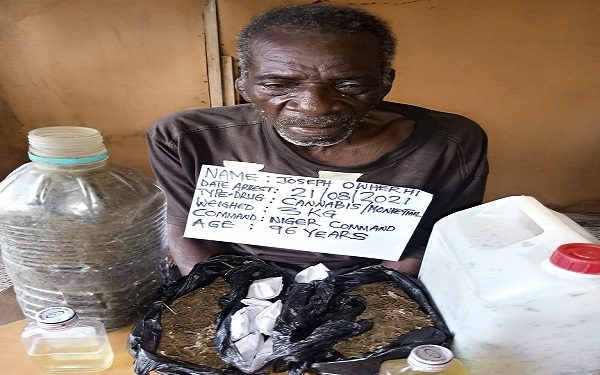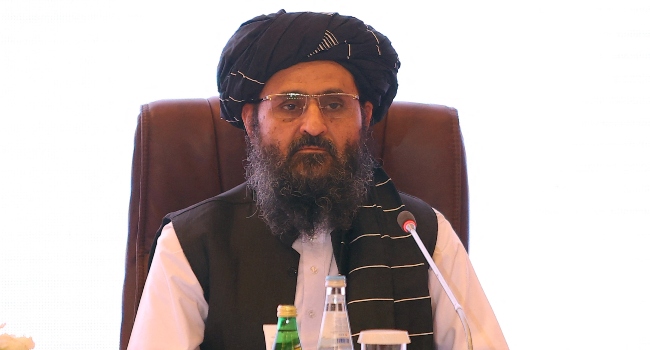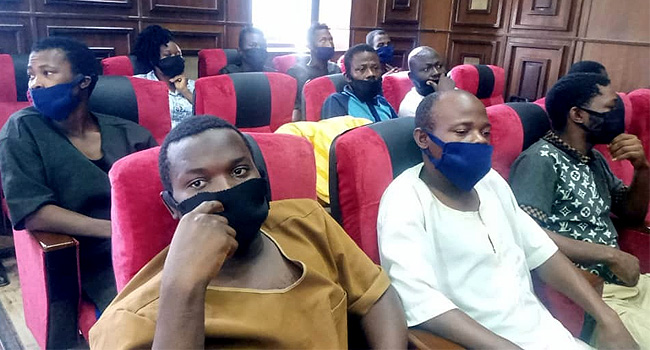A United Nations (UN) publication has detailed a secret government programme tagged, Suhlu, designed to pull commanders of terrorists groups, including Boko Haram and the Islamic State for West African Province (ISWAP) out of the forests, rehabilitate them and provide them a means of livelihood. The development is coming as intelligence agencies have begun investigation into the recent surrender of over 1,200 terrorists and their families in the last three weeks. The investigation, THISDAY learnt, seeks to ascertain whether the surrender was genuine or a ploy to activate and coordinate terror sleeper cells across the country. North-east communities and traditional institutions have protested the potential reintegration of the insurgents into their communities. Governor Babagana Zulum of Borno State and Shehu of Borno, Alhaji Abubakar Umar Garbai El-Kanem, had also raised concerns that the communities where thousands of people were killed by the terrorists and houses destroyed might not be in the right frame of mind to accept the surrendered insurgents, who recently sought the forgiveness of Nigerians. However, the report by a United Nations’ publication, The New Humanitarian, said a clandestine Nigerian government programme was reaching out to senior jihadist fighters in the bush to encourage them to abandon their goal of building a caliphate by force of arms, and to defect. It said the report was based on six months of reporting and research. Government officials, former jihadists, analysts, journalists, displaced people, and civil society workers were interviewed, but nearly all asked to have their names withheld or altered due to security concerns. Some have almost certainly committed atrocities but are unlikely to be prosecuted. The Bama massacre in 2014 killed hundreds of civilians, but one of the commanders involved is now living free on the government’s payroll. Security officials believe sulhu could open the door to a peace deal, ending a stalemated conflict that is now in its twelfth year. But critics argue such a deal would reward mass killers. One of the former commanders and beneficiary of the programme, Aliyu, has a new life now. The old was the decade he spent fighting with Boko Haram and then with the breakaway Islamic State of West Africa Province (ISWAP) in the scrubland of the North-east. “It’s the two wives and four children he left behind when he defected, and the power he once wielded as a jihadist rijal-literally a ‘man’ – in zones under the insurgents’ control. “In his early thirties, with a wispy goatee, Aliyu has remarried to a forthright woman from the northeastern city of Maiduguri. She is also former Boko Haram, and they have been set up with the rent-free house in Kaduna, a business license, and a small monthly stipend provided by Nigeria’s domestic spy service, better known as DSS”. The price of this largesse: to work for DSS to turn other jihadists under a clandestine project known as sulhu – Arabic for peacemaking. It’s so controversial that no government representative would go on record to discuss it, and given Abuja’s increasing hostility to independent reporting on security matters, few Nigeria-based civil society figures wanted to be named either. Sulhu is applauded by its supporters as smart warfare – a means to remove senior jihadists from the battlefield more effectively than the stuttering orthodox military campaign. “We have a proof of concept; it’s working,” said an Abuja-based analyst, who wouldn’t agree to be identified beyond that description. “It’s depleting the enemy’s fighting force.” But the men on the Sulhu programme are almost certain to have been involved in atrocities. They have not been granted a formal amnesty, but neither have they been held to account for any crimes committed in a brutal conflict that is now in its twelfth year. It’s a war that has killed 35,000 people – 350,000 if you include the victims of the accelerating humanitarian crisis – and upended the lives of millions more, according to the UN. “These are mass killers, yet on a programme sponsored by Nigerian taxpayers,” explained a former government-Boko Haram intermediary. He has been in touch with the movement almost from the start, when it was still a local religious sect led by a young cleric, Mohammed Yusuf, before it declared war on the Nigerian state in 2009. Sulhu grew out of the behind-the-scenes attempts to free the more than 270 Chibok schoolgirls seized by Boko Haram in 2014. After years of painstaking contact-making through a network of mediators, it dawned on the negotiators that not only did they have an opening to secure the release of some of the schoolgirls, but there were also Mujahideen signalling they might be open to dialogue – a potential breakthrough in a deadlocked conflict. A total of 150 Mujahideen have surrendered their weapons and crossed over since 2019, according to people familiar In the last few weeks, there has been a separate surge, related to internal feuding within the jihadist movement following the death this May of Abubakar Shekau, who had led Boko Haram since 2009. Some of those Mujahideen, like Aliyu, were commanders, known as qaid – in charge of several districts. Such was the importance attached to the initial group that they were invited to Abuja, where they met representatives of President Muhammadu Buhari. Under Sulhu, defectors are enrolled in a six-month “deradicalisation” course in the military’s demobilisation and reintegration centre in Mallam Sidi, in northeastern Gombe State. After promising to renounce violence and be good citizens, they are issued with a graduation certificate, signed by a high court judge – and some have then gone on to set up businesses, from cap-making to chicken-rearing. Sulhu is run by DSS and the military, but is separate from the army’s much larger disarmament, demobilisation, and reintegration initiative, known as Operation Safe Corridor (OSC) and also based in Mallam Sidi. OSC is aimed at low-risk former combatants, although as many as 75 per cent of those on the programme may never have held a weapon – just villagers snagged in the military’s catch-all dragnets, with years spent














